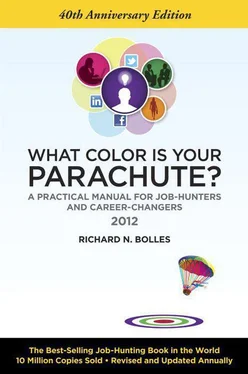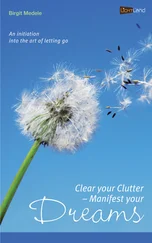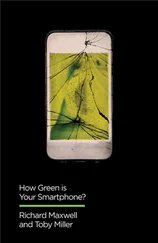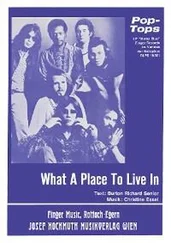2. There are other things that we can do to keep ourselves more physically fit while unemployed. When I was myself unemployed I found it important to:
• get regular exercise, involving a daily walk;
• drink plenty of water each day (this seems silly, but I found out we tend to skip the water, and get dehydrated, when we’re out of work);
• eliminate sugar as much as possible from the diet;
• take supplementary vitamins daily (no matter how many doctors and nutritionists try to tell us that we already get enough from our daily food);
• eat balanced meals (not just pig out on junk food in front of the telly);
• and all that other stuff that our mothers always told us to do.
3. We can do something about our physical space around us. Specifically, we can look critically at our apartment, or home, and ask ourselves if that physical space suggests the occupant is an upbeat person. This is important because our surroundings often mirror how we feel about ourselves. If our physical environment looks like a disaster area, that in itself can make us depressed. Now that we are unemployed, we can vow we will live simpler —something that maybe we’ve always wanted to do. We can begin by taking care that each time we handle a thing, we take it all the way to its new destination; we don’t just drop it on the counter, thinking that we will deal with it later. We can take care that when we take our clothes off at night, we don’t just drop them on the floor, but hang them up or put them in a laundry-hamper. And that when we finish eating, we put the dishes where they are going to be washed, and put our food back in the refrigerator. And we can determine that when we do such things as get a screwdriver out, to fix a screw that’s dropped out of something, that we take the screwdriver all the way back to the tool box or wherever its final destination is. And so on.
When we determine to always put our things away in a timely fashion, neatness will start to appear in our physical environment; this can help lift our spirits immensely, as our physical space mirrors an upbeat life.
4. We can get outdoors daily and take a good walk. Hiding in our cave will only make us feel more “down.” Green trees, sunlight, mountains, flowers, people!, will do our heart good to see, each day.
5. We can focus on other peopleand their problems—not just our own. If our unemployment is dragging on and on, and we’re starting to have a lot of time on our hands, we can find someplace in town that is dealing with people worse off than we are, and go volunteer there. I’m talking food banks, hospitals, housing aid, anything dealing with kids, especially deprived kids, or kids with tremendous handicaps—that sort of thing. We can do a search on Google, put in the name of our town or city plus the name of the problem we want to help with, and see what turns up. If we determine to help someone else in need, while we’re unemployed, we won’t feel so discarded by society.
6. We can go on fun mini-adventures. Often there are portions of our surroundings that we have never explored, but a tourist would “hit” on the very first day they were there.
I lived in New York City for a long time; never once went up in the Empire State Building. I lived in San Francisco for years; never once went out to the Zoo. You get the point. If I lived in either of these cities today, and was unemployed with time on my hands, I would set out on mini-adventures, going to visit those places I’d never visited before. We can learn to give up minding that we lost the old world we were so accustomed to. We can turn our face toward the future. There are new worlds to conquer, after all.
7. We can expand our mental horizons by learning something new. There are a million free videos online, where we can learn just about anything. A sampler of them can be found in chapter 3. In addition to videos, there are also videocasts, webcasts, podcasts, and every other kind of cast. We can type the word “webcast,” plus the subject in which we are interested, into our favorite browser like Google, then pick through what turns up. There are also, of course, books. For our Kindle or Nook or iPad, or from online bookstores like Amazon or B&N, there are lots of eBooks available.
We can go read up on subjects that have always interested us, but we’ve never had enough time to explore. While we’re unemployed, we have the time. If we can’t think of any subject, there’s always the human mind . The mind, after all, is what is troubling us in our present situation. The more we understand it, the better we can heal. If you’re looking for suggestions, I’d read anything by Martin Seligman. There’s Learned Optimism: How to Change Your Mind and Your Life , which, as one reviewer commented, “vaulted me out of my funk.” It has excellent chapters on dealing with depression. Or there’s Seligman’s most recent book, Flourish: A Visionary New Understanding of Happiness and Well-being . It came out in April 2011, and it is splendid. If you want to delve into improving your memory, there’s Joshua Foer’s Moonwalking with Einstein: the Art and Science of Remembering Everything , again, just published. And, last but not least, if you want to learn more about how the mind influences another mind, there is Robert B. Cialdini’s Influence: The Psychology of Persuasion . Incidentally, all these authors have extensive videos on YouTube.
Another subject to explore is the world around us. I love this year’s The Unofficial U.S. Census: Things the Official U.S. Census Doesn’t Tell You About America , by Les Krantz and Chris Smith. My favorite factoid, because it’s related to what I was talking about in hint #1 here: “More than one-third of Americans take naps.” Yes!
8. We can expand our mental horizons by revisiting something old. If our town still has a public library, we can revisit beloved books. If we have a computer, we can revisit old websites we haven’t looked at forever . We can renew our acquaintance with old friends. Phillips Brooks used to say there are two kinds of exploration: one is going out to explore new country; the other is to dig more deeply down into the country we already occupy. This is that latter kind.
9. If we feel we’re at the mercy of factors completely beyond our control, we can still study to see what is within our control, even if it’s only 5 percent or even just 2 percent of the whole, and work on that. You can go back and read chapter 3, again, where I went into this in much greater detail.
10. We can talk, talk, talk with our loved ones, or a close friend, about all that is troubling us. It’s amazing how giving voice to thoughts and feelings, particularly when we don’t much care for those thoughts and those feelings, causes them to lose their power over us. So we should do it, because otherwise stuff bottled up inside us tends to fester and grow. We don’t want that. We must just take care that we don’t pick the town gossip to confide in, nor a friend or loved one who can’t keep their mouth shut.
11. We can pound a punching bag or even some pillows, to get some of the angry energy out of us. I don’t know why, but it’s astonishing how many of the unemployed have told me this actually helps get rid of some of their anger. And this helps lift our depression as well. Sometimes depression and anger do seem almost to be two different sides of the same coin. If we don’t have a gym in our life we can build one at home, simply by putting a pile of pillows on top of our bed, and then pounding the pillows repeatedly, as hard as we can —without breaking anything in our hands, wrists, or arms . This often really helps. We are strange creatures.
Читать дальше












